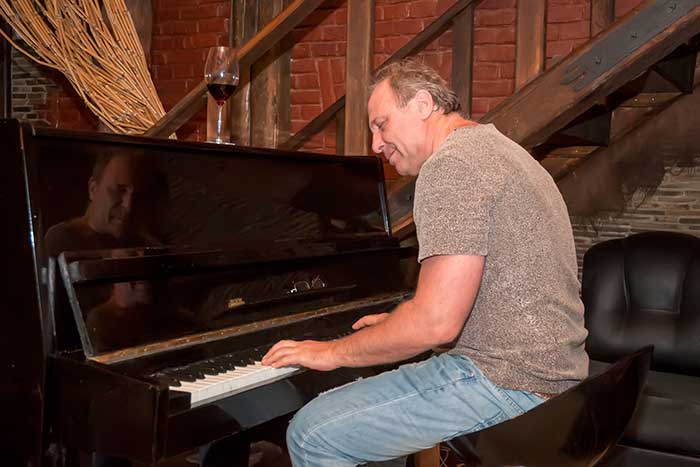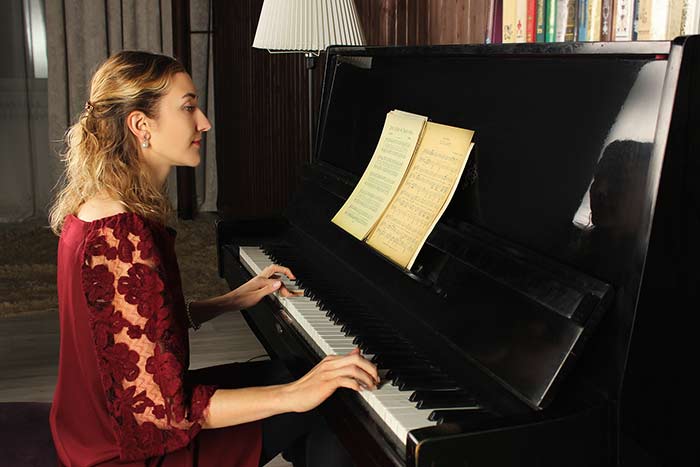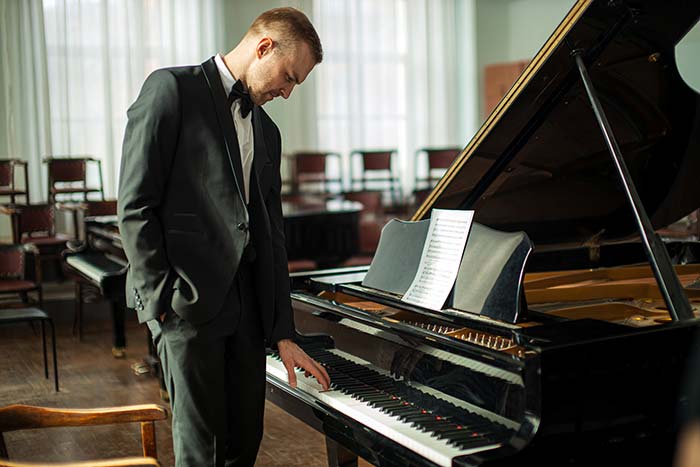In recent years, artificial intelligence (AI) has made significant strides in various fields, including education.
The classical piano market is no exception, with AI-powered tools and platforms revolutionising how people learn and practise the instrument.
However, despite these technological advancements, private piano lessons with human instructors remain essential.
This article delves into the reasons why traditional private lessons continue to be invaluable, even as AI technology reshapes the landscape of piano education.
Personalised and Holistic Feedback Tailored Instruction
AI-driven learning platforms such as Flowkey, Simply Piano, and Skoove offer personalised lesson plans that adapt to a student’s pace and skill level.
These platforms analyse a student’s performance and provide real-time feedback on aspects such as pitch, rhythm, and dynamics. However, they often lack the nuanced understanding that a human teacher can provide.
An experienced piano teacher can tailor instructions based on a student’s unique needs, learning style, and long-term goals.
They can observe subtle aspects of a student’s playing that AI might miss, such as tension in the hands or posture issues, and provide immediate, personalised corrections.
Interpretation and Expression
Classical piano playing involves more than technical accuracy; it requires emotional expression and interpretive skill.
A human teacher can guide students in understanding the subtleties of musical phrasing, dynamics, and articulation, helping them develop their own interpretative style.
This kind of artistic coaching is something that AI currently struggles to replicate fully.
A teacher can provide insights into the emotional and historical context of a piece, which is crucial for truly expressive playing.
Motivation and Emotional Support Encouragement
Learning an instrument can be challenging, and maintaining motivation is crucial for progress. Human teachers provide encouragement, inspiration, and accountability.
They can adapt their teaching methods to keep lessons engaging and motivating, offering praise and constructive criticism in a way that AI cannot.
This personal connection helps students stay committed to their practice, overcoming hurdles and celebrating milestones together.
Emotional Connection
The student-teacher relationship is built on trust and emotional connection.
A human teacher can respond empathetically to a student’s struggles and triumphs, offering personalised support that fosters a positive learning environment.
This emotional aspect of learning is vital for students, especially younger ones, as it builds confidence and resilience.
The presence of a supportive mentor can significantly impact a student’s dedication and enthusiasm for learning.
Customised Learning Paths Flexible Adaptation
Human teachers can adjust their teaching strategies dynamically in real-time based on a student’s progress during a lesson.
They can introduce new techniques, pieces, and exercises that specifically address a student’s strengths and weaknesses.
This flexibility allows for a more responsive and effective learning experience compared to the more rigid structures of AI programs.
A teacher can instantly pivot their approach if a particular method isn’t working, ensuring that the student remains engaged and challenged appropriately.
Long-term Development
Experienced teachers can provide a comprehensive, long-term learning strategy that includes a mix of technique, theory, repertoire, and performance skills.
They can prepare students for exams, competitions, and recitals with a well-rounded approach that goes beyond the capabilities of AI-driven tools.
This holistic development ensures that students not only become proficient pianists but also well-rounded musicians with a deep understanding of music theory and history.
Advanced Techniques and Physical Guidance Complex Techniques
Advanced piano techniques often require hands-on guidance. Teachers can physically demonstrate proper hand positioning, posture, and finger movements, providing immediate adjustments and tactile feedback crucial for mastering difficult techniques.
AI tools, while sophisticated, lack the capability to offer this level of detailed, physical instruction.
The tactile aspect of learning complex techniques is essential for developing muscle memory and preventing bad habits that could hinder progress.
Preventing Injuries
Incorrect playing techniques can lead to injuries such as tendonitis or carpal tunnel syndrome.
Human teachers can closely observe a student’s posture and hand movements, providing corrective guidance to prevent such issues.
This level of physical interaction is beyond the scope of current AI technologies.
By ensuring that students develop proper ergonomic playing habits, teachers help prevent long-term injuries and ensure a healthy, sustainable approach to playing the piano.
Musical and Historical Context Contextual Understanding
Human teachers can provide valuable context about the pieces being learned, including historical background, composer intentions, and stylistic conventions.
This deeper understanding enriches the learning experience and helps students appreciate the music on a more profound level.
Understanding the cultural and historical context of a piece can transform a performance from technically proficient to truly captivating, allowing students to connect with the music on a deeper level.
Cultural Nuances
Classical music is steeped in cultural and historical nuances that are best conveyed through personal instruction.
Teachers can share anecdotes, insights, and performance practises that bring the music to life in a way that AI cannot.
This cultural transmission is an integral part of learning classical music, helping students connect more deeply with the repertoire and appreciate its rich heritage.
Conclusion
While AI offers remarkable tools for piano learning, providing instant feedback, and enhancing practice efficiency, it cannot fully replace the depth and richness of private lessons with a human teacher.
Personalised feedback, emotional support, advanced technique instruction, and contextual understanding are all areas where human teachers excel.
For these reasons, private piano lessons remain a crucial component of a comprehensive piano education, ensuring that students not only play accurately but also expressively and meaningfully.
The future of piano education likely lies in a balanced approach that leverages the strengths of both AI technology and traditional instruction.
By combining the personalised, empathetic, and holistic approach of human teachers with the innovative, adaptive, and accessible tools provided by AI, students can achieve the best of both worlds.
This synergy will ensure that the rich tradition of classical piano playing continues to thrive in the modern age, offering a well-rounded and deeply enriching educational experience for pianists of all levels.













